Fleurs du Mal Magazine


Or see the index
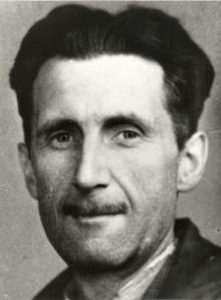
A Dressed Man
A dressed man and a naked man
Stood by the kip-house fire,
Watching the sooty cooking-pots
That bubble on the wire;
And bidding tanners up and down,
Bargaining for a deal,
Naked skin for empty skin,
Clothes against a meal.
‘Ten bob it is,’ the dressed man said,
‘These boots cost near a pound,
This coat’s a blanket of itself.
When you kip on the frosty ground.’
‘One dollar,’ said the nakd man,
‘And that’s a hog too dear;
I’ve seen a man strip off his shirt
For a fag and a pot of beer.’
‘Eight and a tanner,’ the dressed man said,
George Orwell
(1903 – 1950)
A Dressed Man
• fleursdumal.nl magazine
More in: Archive O-P, Archive O-P, George Orwell, Orwell, George

Our Minds Are Married,
But We are Too Young
Our minds are married, but we are too young
For wedlock by the customs of this age
When parent homes pen each in separate cage
And only supper-earning songs are sung.
Times past, when medieval woods were green,
Babes were betrothed, and that betrothal brief.
Remember Romeo in love and grief—
Those star-crossed lovers—Juliet was fourteen.
Times past, the caveman by his new-found fire
Rested beside his mate in woodsmoke’s scent.
By our own fireside we shall rest content
Fifty years hence keep troth with hearts desire.
We shall remember, when our hair is white,
These clouded days revealed in radiant light.
George Orwell
(1903 – 1950)
Our Minds Are Married, But We are Too Young
• fleursdumal.nl magazine
More in: Archive O-P, Archive O-P, George Orwell, Orwell, George, Romeo & Juliet

Captive Conquerors
OH! Stuttgart Frauleins, and capacious Fraus,
What shocking news is this that filters through?
Have you been fostering domestic rows
By casting, naughtily, glad eyes of blue
At poor old Tommy in his prison-house?
Tut! tut! This is a pretty how-d’ye do!
Anna and Gretchen, where’s your strength of mind?
Think of that khaki crowd whose force of arms
Bustles your goose-step legions from behind ;
These very captives should inspire alarms.
You are indeed disloyal and unkind .
To fall a prey to their dishevelled charms.
The gods have come among you, I admit,
To make your jealous Herren fume and fuss.
Unkempt, unshaven, rather short of kit,
The prisoners attract you even thus.
But, Fraus and Frauleins, what’s the use of it?
Their hearts, please understand, belong to us !
Jessie Pope
(1868 – 1941)
Captive Conquerors
From: War Poems
• fleursdumal.nl magazine
More in: *War Poetry Archive, Archive O-P, Pope, Jessie, WAR & PEACE
Geluksvogels bevat een keuze uit Luigi Pirandello’s Novellen voor een jaar, in een blinkend nieuwe vertaling van Yond Boeke en Patty Krone.
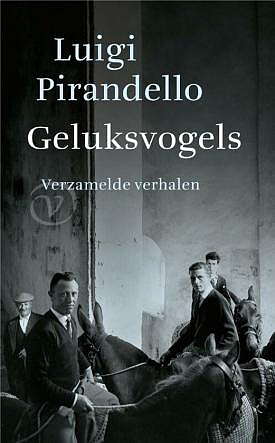 Pirandello schreef deze opmerkelijk hoogwaardige verzameling verhalen tussen 1894 en 1936. Zijn dood belette hem het project – één novelle voor elke dag van het jaar – te voltooien.
Pirandello schreef deze opmerkelijk hoogwaardige verzameling verhalen tussen 1894 en 1936. Zijn dood belette hem het project – één novelle voor elke dag van het jaar – te voltooien.
De diversiteit van zijn verhalen, die getuigen van groot psychologisch inzicht, een buitengewoon scherp gevoel voor humor en immens mededogen, is exemplarisch voor Pirandello’s enorme veelzijdigheid als schrijver.
Hij voert een breed scala aan markante personages ten tonele: van arme Siciliaanse boeren die tevergeefs strijden tegen de clerus tot wufte stedelingen die verstrikt raken in hun eigen overspel, van een wanhopige patiënt die in een New Yorks ziekenhuis uit het raam springt tot een geëxalteerde actrice die het moet opnemen tegen een vleermuis.
Pirandello laveert virtuoos tussen vlotte dialogen, van weemoed doortrokken landschapsbeschrijvingen en filosofische bespiegelingen over het aardse bestaan. Sommige verhalen blijken ook nu nog verrassend actueel.
Luigi Pirandello (1867-1936), geboren in een gegoede familie op Sicilië, kreeg in 1934 de Nobelprijs voor de Literatuur. De verfilming van zijn verhalen door Paolo en Vittorio Taviani, Kaos, werd wereldberoemd.
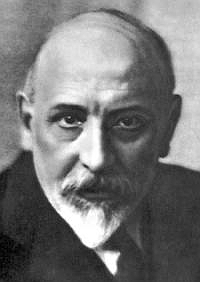 # new translations
# new translations
Geluksvogels Verzamelde verhalen
Auteur: Luigi Pirandello
Taal: Nederlands
Vertaald door Yond Boeke & Patty Krone
Hardcover
Druk: 1 februari 2022
832 pagina’s
ISBN 9789028213142
€ 45,00
• fleursdumal.nl magazine
More in: #Editors Choice Archiv, Archive O-P, Archive O-P, Pirandello, Luigi, Pirandello, Luigi
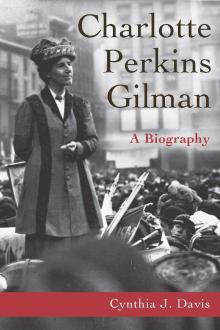
The Anti-Sufragists
Fashionable women in luxurious homes,
With men to feed them, clothe them, pay their bills,
Bow, doff the hat, and fetch the handkerchief;
Hostess or guest; and always so supplied
With graceful deference and courtesy;
Surrounded by their horses, servants, dogs–
These tell us they have all the rights they want.
Successful women who have won their way
Alone, with strength of their unaided arm,
Or helped by friends, or softly climbing up
By the sweet aid of “woman’s influence”;
Successful any way, and caring naught
For any other woman’s unsuccess–
These tell us they have all the rights they want.
Religious women of the feebler sort–
Not the religion of a righteous world,
A free, enlightened, upward-reaching world,
But the religion that considers life
As something to back out of !– whose ideal
Is to renounce, submit, and sacrifice.
Counting on being patted on the head
And given a high chair when they get to heaven–
These tell us they have all the rights they want.
Ignorant women–college bred sometimes,
But ignorant of life’s realities
And principles of righteous government,
And how the privileges they enjoy
Were won with blood and tears by those before–
Those they condemn, whose ways they now oppose;
Saying, “Why not let well enough alone?”
Our world is very pleasant as it is”–
These tell us they have all the rights they want.
And selfish women–pigs in petticoats–
Rich, poor, wise, unwise, top or bottom round,
But all sublimely innocent of thought,
And guiltless of ambition, save the one
Deep, voiceless aspiration–to be fed!
These have no use for rights or duties more.
Duties today are more than they can meet,
And law insures their right to clothes and food–
These tell us they have all the rights they want.
And, more’s the pity, some good women too;
Good, conscientious women with ideas;
Who think–or think they think–that woman’s cause
Is best advanced by letting it alone;
That she somehow is not a human thing,
And not to be helped on by human means,
Just added to humanity–an “L”–
A wing, a branch, an extra, not mankind–
These tell us they have all the rights they want.
And out of these has come a monstrous thing,
A strange, down-sucking whirlpool of disgrace,
Women uniting against womanhood,
And using that great name to hide their sin!
Vain are their words as that old king’s command
Who set his will against the rising tide.
But who shall measure the historic shame
Of these poor traitors–traitors are they all–
To great Democracy and Womanhood!
Charlotte Perkins Gilman
(1860-1935)
The Anti-Sufragists
Suffrage Songs and Verses
• fleursdumal.nl magazine
More in: #Editors Choice Archiv, Archive O-P, Archive O-P, Feminism, The Ideal Woman

Coo-Ee
“Down under” boys on furlough are in town
Discharged from hospital, repaired and braced,
Their faces still retain, their native brown,
Their millinery captivates our taste.
They’ve proved themselves a terror to the Turk,
Of cut and thrust they bear full many a token,
But though they’ve been through grim, heartbreaking work,
The Anzac spirit never can be broken.
Their talk is picturesque, their manner frank,
A little hasty, what they think— they say—
They’ve got a down on arrogance and swank,
Passive submission doesn’t come their way.
Risk and adventure are their fondest joys,
If there’s a fight around, well, they’ll be in it—
To tell the truth, they really are “some” boys—
You get quite friendly with them in a minute.
Quite friendly, yes, no harm in being friends,
They must not find their furlough dull and tame,
But, girls, see to it there the matter ends,
And show thatLondongirls can play the game,
While of good comradeship you take your fill
Don’t use your power to make their hearts your plunder,
But let them pause, and hear when nights are still
The other girl who coo-ees from “down under.”
Jessie Pope
(1868 – 1941)
Coo-Ee
From: War Poems
• fleursdumal.nl magazine
More in: *War Poetry Archive, Archive O-P, Pope, Jessie, WAR & PEACE

Little And Good
Young Thompson was a bit too short,
But hard as nails and level-headed,
And in his soul the proper sort
Of dogged pluck was deeply bedded ;
To join the ranks he almost ran,
But saw the weedy supersede him ;
Though he was every inch a man,
His country didn’t need him.
He read each passionate appeal
On wall and window, cab and cart ;
How impotent they made him feel !
He tried once more, though sick at heart.
In vain ! He saw the sergeants smirk ;
He argued, but they would not heed him ;
So sullenly trudged back to work
His country didn’t need him.
But, now the standard height’s curtailed,
Again he goes to join the ranks ;
Though yesterday he tried and failed
To-day they welcome him with thanks.
Apparently, he’s just as small,
But since his size no more impedes him,
In spirit he is six foot tall
Because his country needs him.
Jessie Pope
(1868 – 1941)
Little And Good
From: War Poems
• fleursdumal.nl magazine
More in: *War Poetry Archive, Archive O-P, Pope, Jessie, WAR & PEACE
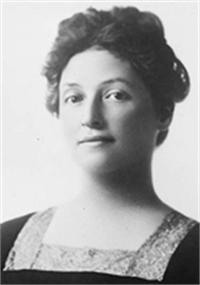
The Foundling
Beautiful Mother, I have toiled all day;
And I am wearied. And the day is done.
Now, while the wild brooks run
Soft by the furrows–fading, gold to gray,
Their laughters turned to musing–ah, let me
Hide here my face at thine unheeding knee,
Beautiful Mother; if I be thy son.
The birds fly low. Gulls, starlings, hoverers,
Along the meadows and the paling foam,
All wings of thine that roam
Fly down, fly down. One reedy murmur blurs
The silence of the earth; and from the warm
Face of the field the upward savors swarm
Into the darkness. And the herds are home.
All they are stalled and folded for their rest,
The creatures: cloud-fleece young that leap and veer;
Mad-mane and gentle ear;
And breath of loving-kindness. And that best,–
O shaggy house-mate, watching me from far,
With human-aching heart, as I a star–
Tempest of plum’d joys, just to be near!
So close, so like, so dear; and whom I love
More than thou lovest them, or lovest me.
So beautiful to see,
Ah, and to touch! When those far lights above
Scorch me with farness–lights that call and call
To the far heart, and answer not at all;
Save that they will not let the darkness be.
And what am I? That I alone of these
Make me most glad at noon? That I should mark
The after-glow go dark?
This hour to sing–but never have–heart’s-ease!
That when the sorrowing winds fly low, and croon
Outside our happy windows their old rune,
Beautiful Mother, I must wake, and hark?
Who am I? Why for me this iron Must?
Burden the moon-white ox would never bear;
Load that he cannot share,
He, thine imperial hostage of the dust.
Else should I look to see the god’s surprise
Flow from his great unscornful, lovely eyes–
The ox thou gavest to partake my care.
Yea, all they bear their yoke of sun-filled hours.
I, lord at noon, at nightfall no more free,
Take on more heavily
The yoke of hid, intolerable Powers.
–Then pushes here, in my forgetful hand,
This near one’s breathless plea to understand.
Starward I look; he, even so, at me!
And she who shines within my house, my sight
Of the heart’s eyes, my hearth-glow, and my rain,
My singing’s one refrain–
Are there for her no tidings from the height?
For her, my solace, likewise lost and far,
Islanded with me here, on this lone star
Washed by the ceaseless tides of dark and light.
What shall it profit, that I built for her
A little wayside shelter from the stark
Sky that we hear, and mark?
Lo, in her eyes all dreams that ever were!
And cheek-to-cheek with me she shares the quest,
Her heart, as mine for her, sole tented rest
From light to light of day; from dark–till Dark.
Yea, but for her, how should I greatly care
Whither and whence? But that the dark should blast
Our bright! To hold her fast,–
Yet feel this dread creep gray along the air.
To know I cannot hold her so my own,
But under surge of joy, the surges moan
That threaten us with parting at the last!
Beautiful Mother, I am not thy son.
I know from echoes far behind the sky.
I know; I know not why.
Even from thy golden, wide oblivion:
Thy careless leave to help thy harvesting,
Thy leave to work a little, live, and sing;
Thy leave to suffer–yea, to sing and die,
Beautiful Mother! …
Ah, Whose child am I?
Love sang to me. And I went down the stair,
And out into the darkness and the dew;
And bowed myself unto the little grass,
And the blind herbs, and the unshapen dust
Of earth without a face. So let me be.
For as I hear, the singing makes of me
My own desire, and momently I grow.
Yea, all the while with hands of melody,
The singing makes me, out of what I was,
Even as a potter shaping Eden clay.
Ever Love sings, and saith in words that sing,
‘Beloved, thus art thou; and even so
Lovely art thou, Beloved!’–Even so,
As the Sea weaves her path before the light,
I hear, I hear, and I am glorified.
Love sang to me, and I am glorified
Because of some commandment in the stars.
And I shall grow in favour and in shining,
Till at the last I am all-beautiful;
Beautiful, for the day Love sings no more.
Josephine Preston Peabody
(1874 – 1922)
The Foundling
• fleursdumal.nl magazine
More in: # Classic Poetry Archive, Archive O-P, Archive O-P
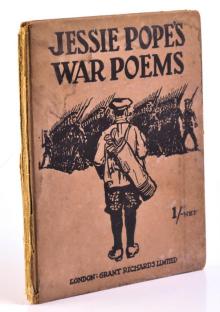
War Girls
There’s the girl who clips your ticket for the train,
And the girl who speeds the lift from floor to floor,
There’s the girl who does a milk-round in the rain,
And the girl who calls for orders at your door.
Strong, sensible, and fit,
They’re out to show their grit,
And tackle jobs with energy and knack.
No longer caged and penned up,
They’re going to keep their end up
Till the khaki soldier boys come marching back.
There’s the motor girl who drives a heavy van,
There’s the butcher girl who brings your joint of meat,
There’s the girl who cries ‘All fares, please!’ like a man,
And the girl who whistles taxis up the street.
Beneath each uniform
Beats a heart that’s soft and warm,
Though of canny mother-wit they show no lack;
But a solemn statement this is,
They’ve no time for love and kisses
Till the khaki soldier-boys come marching back.
Jessie Pope
(1868 – 1941)
War Girls
From: War Poems
• fleursdumal.nl magazine
More in: *War Poetry Archive, Archive O-P, Pope, Jessie, WAR & PEACE
Like Richard Ellmann’s James Joyce, Richard Zenith’s Pessoa immortalizes the life of one of the twentieth century’s greatest writers.
 Nearly a century after his wrenching death, the Portuguese poet Fernando Pessoa (1888–1935) remains one of our most enigmatic writers. Believing he could do “more in dreams than Napoleon,” yet haunted by the specter of hereditary madness, Pessoa invented dozens of alter egos, or “heteronyms,” under whose names he wrote in Portuguese, English, and French.
Nearly a century after his wrenching death, the Portuguese poet Fernando Pessoa (1888–1935) remains one of our most enigmatic writers. Believing he could do “more in dreams than Napoleon,” yet haunted by the specter of hereditary madness, Pessoa invented dozens of alter egos, or “heteronyms,” under whose names he wrote in Portuguese, English, and French.
Unsurprisingly, this “most multifarious of writers” (Guardian) has long eluded a definitive biographer—but in renowned translator and Pessoa scholar Richard Zenith, he has met his match.
Relatively unknown in his lifetime, Pessoa was all but destined for literary oblivion when the arc of his afterlife bent, suddenly and improbably, toward greatness, with the discovery of some 25,000 unpublished papers left in a large, wooden trunk. Drawing on this vast archive of sources as well as on unpublished family letters, and skillfully setting the poet’s life against the nationalist currents of twentieth-century European history, Zenith at last reveals the true depths of Pessoa’s teeming imagination and literary genius.
Much as Nobel laureate José Saramago brought a single heteronym to life in The Year of the Death of Ricardo Reis, Zenith traces the backstories of virtually all of Pessoa’s imagined personalities, demonstrating how they were projections, spin-offs, or metamorphoses of Pessoa himself. A solitary man who had only one, ultimately platonic love affair, Pessoa used his and his heteronyms’ writings to explore questions of sexuality, to obsessively search after spiritual truth, and to try to chart a way forward for a benighted and politically agitated Portugal.
Although he preferred the world of his mind, Pessoa was nonetheless a man of the places he inhabited, including not only Lisbon but also turn-of-the-century Durban, South Africa, where he spent nine years as a child. Zenith re-creates the drama of Pessoa’s adolescence—when the first heteronyms emerged—and his bumbling attempts to survive as a translator and publisher.
Zenith introduces us, too, to Pessoa’s bohemian circle of friends, and to Ophelia Quieroz, with whom he exchanged numerous love letters.
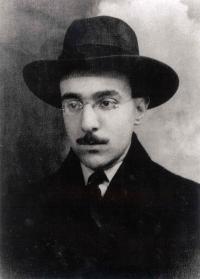 Pessoa reveals in equal force the poet’s unwavering commitment to defending homosexual writers whose books had been banned, as well as his courageous opposition to Salazar, the Portuguese dictator, toward the end of his life. In stunning, magisterial prose, Zenith contextualizes Pessoa’s posthumous literary achievements—especially his most renowned work, The Book of Disquiet.
Pessoa reveals in equal force the poet’s unwavering commitment to defending homosexual writers whose books had been banned, as well as his courageous opposition to Salazar, the Portuguese dictator, toward the end of his life. In stunning, magisterial prose, Zenith contextualizes Pessoa’s posthumous literary achievements—especially his most renowned work, The Book of Disquiet.
A modern literary masterpiece, Pessoa simultaneously immortalizes the life of a literary maestro and confirms the enduring power of Pessoa’s work to speak prophetically to the disconnectedness of our modern world.
Richard Zenith (1956, Washington, D.C.) is an American-Portuguese writer and translator, winner of Pessoa Prize in 2012.
Pessoa
A Biography
by Richard Zenith (Author)
Published by Liveright
July 20, 2021
Language : English
Hardcover : 1088 pages
ISBN-10 : 0871404710
ISBN-13 : 978-0871404718
$40.00
# new biography
Fernando Pessoa
Richard Zenith
• fleursdumal.nl magazine
More in: #Biography Archives, #Editors Choice Archiv, - Book News, - Bookstores, Archive O-P, Archive Y-Z, Art & Literature News, Pessoa, Fernando, TRANSLATION ARCHIVE

Canticle Of The Babe
I
Over the broken world, the dark gone by,
Horror of outcast darkness torn with wars;
And timeless agony
Of the white fire, heaped high by blinded Stars,
Unfaltering, unaghast;–
Out of the midmost Fire
At last,–at last,–
Cry! …
O darkness’ one desire,–
O darkness, have you heard?–
Black Chaos, blindly striving towards the Word?
–The Cry!
Behold thy conqueror, Death!
Behold, behold from whom
It flutters forth, that triumph of First-Breath,
Victorious one that can but breathe and cling,–
This pulsing flower,–this weaker than a wing,
Halcyon thing!–
Cradled above unfathomable doom.
II
Under my feet, O Death,
Under my trembling feet!
Back, through the gates of hell, now give me way.
I come.–I bring new Breath!
Over the trampled shards of mine own clay,
That smoulder still, and burn,
Lo, I return!
Hail, singing Light that floats
Pulsing with chorused motes:–
Hail to thee, Sun, that lookest on all lands!
And take thou from my weak undying hands,
A precious thing, unblemished, undefiled:–
Here, on my heart uplift,
Behold the Gift,–
Thy glory and my glory, and my child!
III
(And our eyes were opened; eyes that had been holden.
And I saw the world, and the fruits thereof.
And I saw their glories, scarlet-stained and golden,
All a crumbled dust beneath the feet of Love.
And I saw their dreams, all of nothing worth;
But a path for Love, for Him to walk above,
And I saw new heaven, and new earth.)
IV
The grass is full of murmurs;
The sky is full of wings;
The earth is full of breath.
With voices, choir on choir
With tongues of fire,
They sing how Life out-sings–
Out-numbers Death.
V
Who are these that fly;
As doves, and as doves to the windows?
Doves, like hovering dreams round Love that slumbereth;
Silvering clouds blown by,
Doves and doves to the windows,–
Warm through the radiant sky their wings beat breath.
They are the world’s new-born:
Doves, doves to the windows!
Lighting, as flakes of snow;
Lighting, as flakes of flame;
Some to the fair sown furrows;
Some to the huts and burrows
Choked of the mire and thorn,–
Deep in the city’s shame.
Wind-scattered wreaths they go,
Doves, and doves, to the windows;
Some for worshipping arms, to shelter and fold, and shrine;
Some to be torn and trodden,
Withered and waste, and sodden;
Pitiful, sacred leaves from Life’s dishonored vine.
VI
O Vine of Life, that in these reaching fingers,
Urges a sunward way!
Hold here and climb, and halt not, that there lingers
So far outstripped, my halting, wistful clay.
Make here thy foothold of my rapturous heart,–
Yea, though the tendrils start
To hold and twine!
I am the heart that nursed
Thy sunward thirst.–
A little while, a little while, O Vine,
My own and never mine,
Feed thy sweet roots with me
Abundantly.
O wonder-wildness of the pushing Bud
With hunger at the flood,
Climb on, and seek, and spurn.
Let my dull spirit learn
To follow with its longing, as it may,
While thou seek higher day.–
But thou, the reach of my own heart’s desire,
Be free as fire!
Still climb and cling; and so
Outstrip,–outgrow.
O Vine of Life, my own and not my own,
So far am I outgrown!
High as I may, I lift thee, Soul’s Desire.
–Lift thou me higher.
And thou, Wayfaring Woman, whom I meet
On all the highways,–every brimming street,
Lady Demeter, is it thou, grown gaunt
With work and want?
At last, and with what shamed and stricken eyes,
I see through thy disguise
Of drudge and Exile,–even the holy boon
That silvers yonder in the Harvest-moon;–
That dimly under glows
The furrows of thy worn immortal face,
With mother-grace.
O Queen and Burden-bearer, what of those
To whom thou gavest the lily and the rose
Of thy far youth?… For whom,
Out of the wondrous loom
Of thine enduring body, thou didst make
Garments of beauty, cunningly adorned,
But only for Death’s sake!
Largess of life, but to lie waste and scorned.–
Could not such cost of pain,
Nor daily utmost of thy toil prevail?–
But they must fade, and pale,
And wither from thy desolated throne?–
And still no Summer give thee back again
Thine own?
Lady of Sorrows,–Mother,–Drudge august.
Behold me in the dust.
Josephine Preston Peabody
(1874 – 1922)
Canticle Of The Babe
• fleursdumal.nl magazine
More in: # Classic Poetry Archive, Archive O-P, Archive O-P

Kitchener
No stone is set to mark his nation’s loss,
No stately tomb enshrines his noble breast;
Not e’en the tribute of a wooden cross
Can mark this hero’s rest.
He needs them not, his name untarnished stands,
Remindful of the mighty deeds he worked,
Footprints of one, upon time’s changeful sands,
Who ne’er his duty shirked.
Who follows in his steps no danger shuns,
Nor stoops to conquer by a shameful deed,
An honest and unselfish race he runs,
From fear and malice freed.
George Orwell
(1903 – 1950)
Published in the Henley
and South Oxfordshire Standard 21st July 1916
• fleursdumal.nl magazine
More in: Archive O-P, Archive O-P, George Orwell, Orwell, George
Thank you for reading Fleurs du Mal - magazine for art & literature